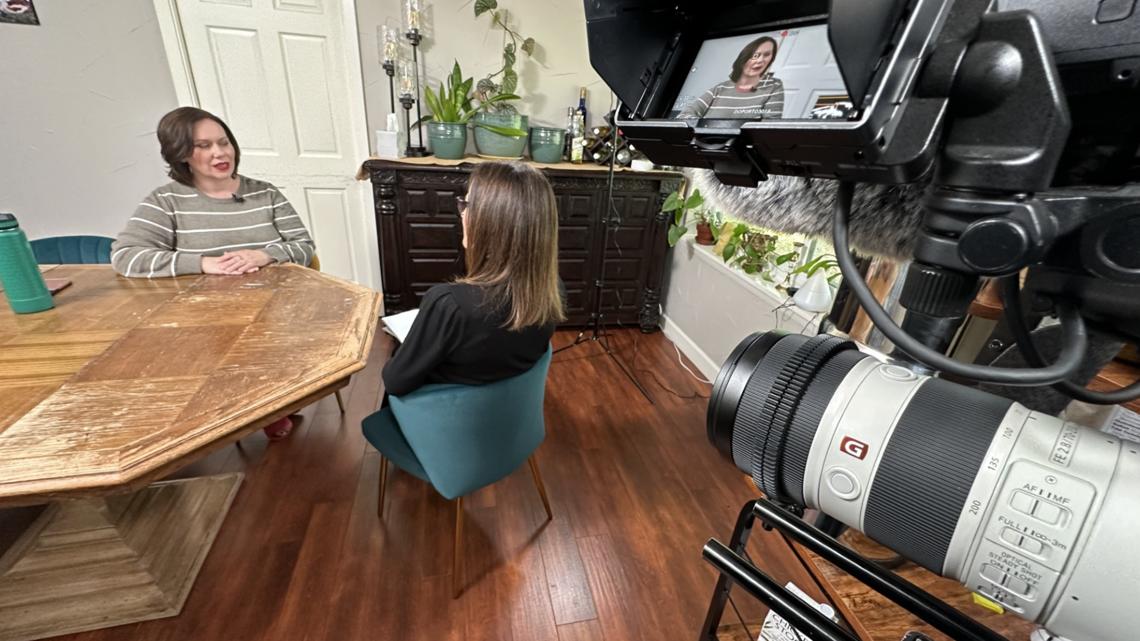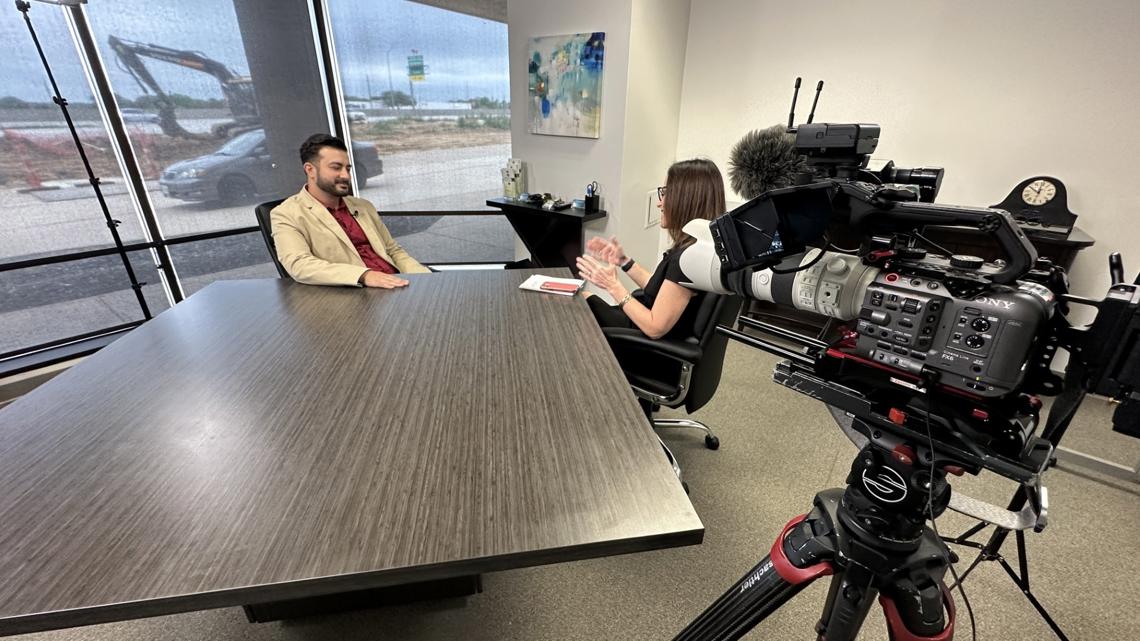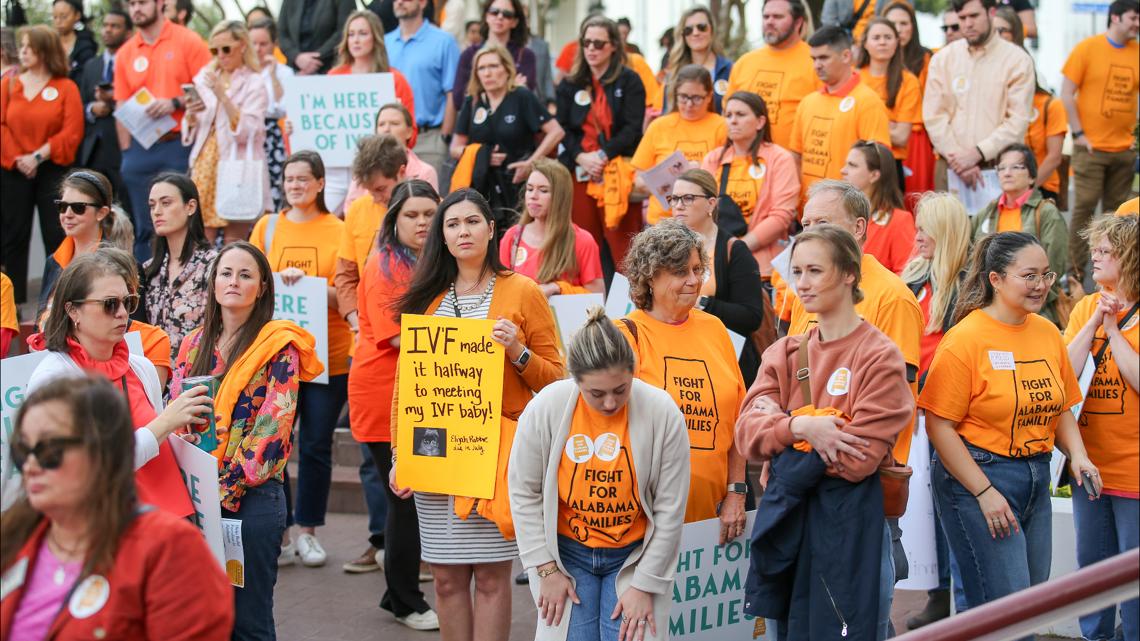Texas Supreme Court Justices are considering whether to hear an appeal that could have far-reaching consequences.
DENTON, Texas — A case now pending before the Texas Supreme Court has the potential to upend IVF treatment across the state, if justices decide lower courts erred when they ruled in a Denton County divorce that frozen embryos should still be treated as property.
Well-known advocacy groups like Texas Right to Life and the American Society for Reproductive Medicine recently filed amicus briefs in the case of Antoun v. Antoun.
At issue is a divorced couple’s three still-frozen embryos and who gets to determine their fate.
As WFAA first reported, Caroline and Gabriel Antoun’s divorce went to trial five days after the U.S. Supreme Court overturned Roe. v. Wade, setting off a chain of events that quickly led to a ban on abortions in Texas.
Caroline Antoun and her attorneys argued in court that the judge hearing their divorce should take into consideration the U.S. Supreme Court’s decision and Texas’s reaction to the ruling when determining the fate of the divorcing couple’s frozen embryos.
They argued that a state that defines life as beginning at the moment of conception should apply child custody laws – not property laws – to the embryos. But the judge ruled that the Dobbs decision does not apply, so Texas still considers frozen embryos property, not people.
SIGNED CONTRACT
When the Antouns began IVF treatment in 2019, they had suffered multiple miscarriages.
They signed a contract stating explicitly what the fertility clinic should do in the event of a divorce. The contract offers a choice of who to “place the frozen embryos at the disposal of.”
The word “husband” is circled.
Caroline and Gabriel both initialed and signed the contract, which gave Gabriel Antoun sole ownership.
“When you’re at the point of IVF, you’d give your right kidney to have a child,” Caroline told WFAA.
“That’s the state of mind you’re in. Probably not the state of mind to be in when signing papers like that,” she said.


The divorce judge followed Texas precedent and the contract, ruling the embryos are property and should go to Gabriel.
Caroline appealed.
Texas’s Second Court of Appeals denied her appeal writing, “Dobbs did not determine the rights of cryogenically stored embryos outside the human body before uterine implantation. Dobbs is not law ‘applicable’ to this case.”
Caroline then appealed to the Texas Supreme Court. Justices have given no indication they will grant a review, but they did ask both sides to file briefs on the merits of the case.
THE ARGUMENTS
Caroline argues she’s been stripped of her rights.
“We say we care about families in Texas. We say we care about parental rights. The right to choose what’s best for families, but in this case we’re not showing it. And our laws ought to reflect that,” Caroline told WFAA.
“I do not want to continue having children with this person, but I don’t have the right because they were considered property. That’s not OK,” she said.
She wants frozen embryos to be subject to custody laws – not property laws – in Texas.
When WFAA initially reported this story, Gabriel Antoun declined to speak with us.
This time he and his attorney, Patrick Wright of The Wright Firm, agreed to an interview.
Gabriel told WFAA, “I fear we’re going to take a family case that has nothing to do with this and we’re going to add a political impact to it and now every other parent is going to pay the price for that.”


He also said he does not know what he’ll do with the frozen embryos.
“Unfortunately, the entire process hasn’t given me time to think about their future. When I say it hasn’t given me time, I mean resources. I’m aging. I have other kids to feed. I have to pay child support. I don’t know what to tell you,” he said.
Gabriel acknowledged it’s a complicated matter, but said he and Caroline knew what they were doing when they chose IVF.
“We were starting our family. We knew exactly their value, we knew their potential and we made that decision,” he said.
Wright added that qualifying frozen embryos as people is something for elected lawmakers in Texas – not judges in Texas – to decide.
“We have to acknowledge and have some empathy for the other side because it is a serious question,” Wright said. “But at the end of the day, this is an agreement that was reached between two adults regarding their family. So I think we should have respect for what that is.”
“We’re just asking that the government not interfere with that and change personal decisions.”
WHAT’S AT STAKE
In February, Alabama’s Supreme Court issued a ruling that defined frozen embryos as humans and the fallout was fast.
IVF clinics across the state paused treatment until lawmakers passed legislation protecting the procedure and the governor signed it into law.
Caroline Antoun supported the ruling but believes what came after was “an inflammatory overreaction.”
“I don’t think in Texas what my case is doing is going to shut down IVF clinics,” she said, adding that she recommends her fertility to a doctor all the time.
“I’m a big fan of it,” she said of IVF treatment.


The American Society for Reproductive Medicine and Aspire Fertility Partners have filed amicus briefs with the state supreme court, arguing against Caroline’s appeal.
ASRM said Caroline’s position “could impede access to IVF in Texas and also affect the many thousands of Texans who have relied on IVF to establish or grow their families.”
But the Justice Foundation and Texas Right to Life filed a brief supporting her, writing that a decision to have a custody hearing for frozen human embryos “does not directly impact the IVF industry.”
“The Texas Legislature has clearly and repeatedly protected human beings from the moment of fertilization. A child is not property. A person’s a person no matter which side of the uterine wall,” their brief stated.
Caroline is convinced Texas could protect IVF at the same time it expands parental rights.
“I have this righteous anger in me,” she said. “How are we going to fix this?”